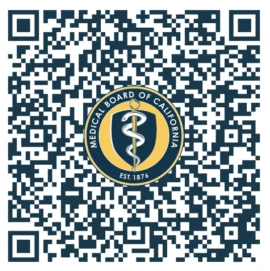Colonoscopy remains best and proven way to detect and
prevent colorectal cancer and colorectal cancer deaths
The American Society for Gastrointestinal Endoscopy (ASGE) is stressing that colonoscopy, using modern endoscopy methods performed according to clinical guidelines, is still the best and most proven way for patients to be screened for colorectal cancer following the release of a Nordic-European Initiative on Colorectal Cancer (NordICC) trial report that was released on October 9 in The New England Journal of Medicine.
“Based on available studies today, colonoscopy is still the gold standard in detecting and preventing colorectal cancer, especially for high-risk individuals,” says ASGE President Bret Petersen, M.D., MASGE. “Of course, a colonoscopy will only work if a patient gets one – and keeping in mind that just 42 percent of the patients from Norway and Poland who were randomized to screening colonoscopy in the NordICC trial actually underwent the procedure.”
The NordICC report suggests that the benefits associated with a colonoscopy are less than anticipated based on previous case-control and cohort studies and it is noted in the report that the study likely underestimated the benefit of colonoscopy.
Dr. Petersen emphasizes that the quality of colonoscopies varies across the globe depending on physician skillset and training, as well as availability of endoscopy tools and technology. Dr. Petersen explains, “Nearly 30 percent of the endoscopists who were included in the NordICC trial did not meet the adenoma detection rate (ADR) of 25 percent that is recommended in the U.S. – while the ADR average in the U.S. is above 40 percent.”
ASGE Immediate-past President Douglas Rex, M.D., MASGE, has several concerns about the study as well. He says, “There was essentially no shift to earlier stage cancers in the screen detected cancers, something almost never seen in screening studies. Further, the incidence reduction in the per protocol analysis was three times higher in Norway than Poland, suggesting that in Poland either high risk or symptomatic patients could have been overrepresented in the colonoscopy group. Plus, there is no analysis of proximal versus distal cancer incidence, which adds to the challenges of understanding the effect of colonoscopy compared to sigmoidoscopy. Additionally, the higher reduction in cancer incidence compared to the mortality reduction in the intent to screen analysis is concerning and unexplained.”
Dr. Petersen concludes that, “In the per protocol analysis, which considers the persons who actually had colonoscopy, there was a 50 percent reduction in mortality. This is consistent with the overwhelming evidence from case control and cohort studies that colonoscopy prevents colorectal cancer and related deaths. This new study has too many unexplained issues to change the consensus regarding the benefit of colonoscopy. Colonoscopy, using modern endoscopy techniques and trained endoscopists, continues to be the single most important, proven and effective way to detect and prevent colorectal cancer.”
Article From ASGE
Colonoscopy remains best and proven way to detect and prevent colorectal cancer and colorectal cancer deaths
Link: https://www.asge.org/home/about-asge/newsroom/news-list/2022/10/10/colonoscopy-remains-best-and-proven-way-to-detect-and-prevent-colorectal-cancer-and-colorectal-cancer-deaths?_zs=io0E8&_zl=AOsH3



